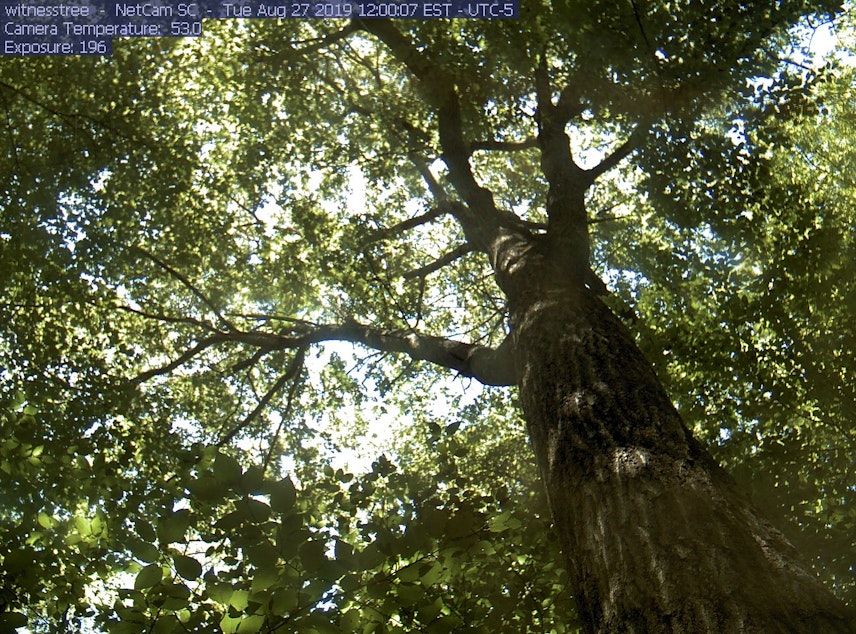What we can learn from a nonagenarian oak tree

Speaking to the trees. How do you distinguish between a hate crime and domestic terrorism? Plastic is officially everywhere, including in rain over remote mountains. And, space expansion through a colonial lens.
Listen to the full show by clicking the play button above, or check out one of the show’s segments below. You can also subscribe to The Record on your favorite podcast app.
Lynda Mapes, Witness Tree
Seattle Times environmental reporter Lynda Mapes has written about wolves in Eastern Washington and orcas in the Salish Sea. But her latest book looks east, to a tree in the Harvard Forest. Both the book and the oak are called Witness Tree.
Domestic terrorism vs hate crime?
How do we distinguish between a hate crime and domestic terrorism? It’s a question more and more families are asking themselves in the wake of racially motivated mass shootings. The director of the FBI said last month that most domestic terrorism cases the bureau investigates are motivated by white supremacy. So we asked Ray Duda, FBI Special Agent in Charge of Seattle and Washington, about how he makes the distinction.
Plastic rain
It’s raining plastic, according to a U.S. Geological Survey study in which microplastics were found in rain over the Rocky Mountains. Should we be concerned here in Seattle? Julie Masura is a research scientist of environmental sciences at the University of Washington Tacoma.
Space colonialism
The language of new frontiers has been used on Pacific islands and the American West to devastating effect. And now we’re turning it upward, to space. With Jeff Bezos and Elon Musk expressing ambitions to colonize space, should we have hesitations? Tayyab Mahmud is the director for the Center for Global Justice at Seattle University, and has published extensively on colonial systems.

